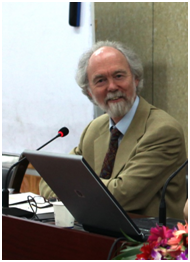
Date: May.19, 2021
Time: 18:30-20:00
Speaker: Barry Buzan
Venue: Room 112, School of Public Affairs, Zijingang Campus
[Speaker Intro]
Barry Buzan is Emeritus Professor of International Relations at the LSE (formerly Montague Burton Professor); honorary professor at Copenhagen, Jilin, and China Foreign Affairs Universities, and at the University of International Relations (Beijing); a Senior Fellow at LSE Ideas; and a Fellow of the British Academy. He has written, co-authored or edited over thirty books, written or co-authored over one hundred and sixty articles and chapters, and lectured, broadcast or presented papers in over twenty countries. In addition to theory, he has engaged in the public policy debates about security in Europe, South Asia, Southern Africa and East Asia. His current research interests focus on: 1) International society, and the English school approach to International Relations; 2) International history and International Relations; 3) China and international society. Books including: Contesting International Society in East Asia (2014,co-edited with Yongjin Zhang); An Introduction to the English School of International Relations: The Societal Approach (2014);The Global Transformation: History, Modernity and the Making of International Relations (2015,with George Lawson); Global International Society: A New Framework for Analysis (2018, with Laust Schouenborg); The Making of Global International Relations: Origins and Evolution of IR at its Centenary (2019, with Amitav Acharya); Rethinking Sino-Japanese Alienation: History Problems and Historical Opportunities (2020, with Evelyn Goh) etc.
【Abstract】
This lecture looks at China’s encounter with modernity from the 19th century to the present day. It builds on the historical narrative of modernity developed by Buzan and Lawson (2015), and two theoretical perspectives: uneven and combined development, and differentiation theory. It opens with a short history of modernity, establishing that it is not a static phenomenon, but a continuously unfolding process. It then explores five periods of China’s encounter with modernity: imperial decline and resistance to modernization; civil war and Japanese invasion; Mao’s radical communist project; Deng’s market socialism; and Xi’s attempt to synthesize Confucius, Mao, and Deng. It explores both how China fits into the general trajectory of modernity, and how it has evolved from rejection of it to constructing its own distinctive version of ‘modernity with Chinese characteristics’. It ends by reflecting on what issues remain within China’s version of modernity, and how it fits, and doesn’t fit with other forms of modernity already established within global international society.


